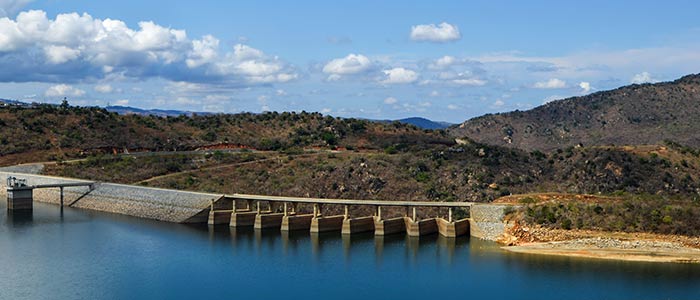Web_AfricaInfrastructure_shutterstock_225946012.jpg

Maguga Dam on the Komati River, Swaziland
Yesterday, saw the conclusion of a week-long conference that saw more than 150 delegates from government, continental organisations and the private sector meet in the African Development Bank’s headquarters in Abidjan, Ivory Coast.
Participants pledged to see through the timely completion of 16 infrastructure ‘mega projects’ considered essential for catalysing Africa’s economy, competitiveness and development. These include transport corridors, energy and ICT networks.
Ibrahim Mayaki, chief executive of the New Partnership for Africa’s Development (NEPAD), which co-organised the conference, said: “A new consensus has taken shape in Abidjan. Various workshops with participants from all over the continent have allowed us to validate key steps on the road to developing our 16 projects.
“African governments, the donor community and international investors are now defining a new paradigm that heralds a new era in Africa’s development, based on the financing and construction of infrastructure that will unlock its economic takeoff.”
The week’s theme was Programme for Infrastructure Development in Africa (PIDA) ‒ a joint initiative of the African Union Commission (AUC), NEPAD and the AfDB. It seeks to promote regional economic integration and the continent’s economic competitiveness by bridging Africa’s huge infrastructure gaps.
During the conference, delegates also heard that one of the most binding constraints to unlocking infrastructure financing on the continent was a lack of proper project preparation, which is in turn is due to a lack of adequate capacity to prepare large projects.
Laetitia Habchi, investment expert at the NEPAD Business Foundation, called for infrastructure projects to be packaged in a way that can attract private sector investors, which has the potential to make a total of around $15bn available each year, early on.
Other panel members agreed that projects need to be aligned with the needs of financers, de-risked and made bankable. Project preparation should be integrated, coordinated and have adequate time, skills and resources.
Innovative financing options were also discussed in the context of energy, with local market bonds and risk mitigation facilities flagged as two ways to go forward.
Partnerships, coordination between projects and ensuring there are training and employment opportunities for young people are also crucial. Young people in Africa making up 60% of total unemployment on the continent.
Ibrahima Thaim, former president of the Economic Community of West African States Regional Electricity Regulatory Authority, said: “Africa has enormous resources, like someone living around the river and not having enough access to water. We cannot go ahead with business as usual as we have been doing for the last 50 years.”
“A change of mentality” is needed, agreed Aboubakari Baba Moussa, director of infrastructures and energy at the AUC. “To make it happen we must work in synergy.”













